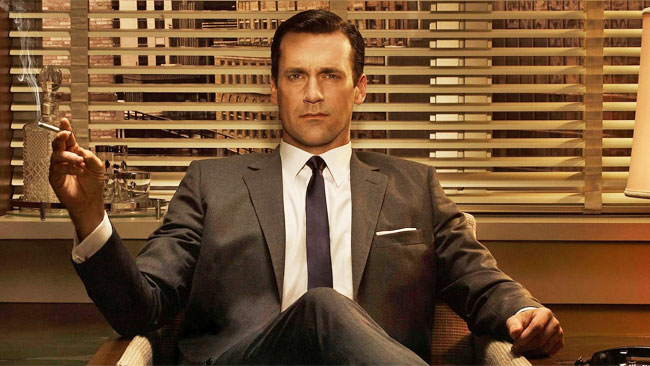Mad Men is the reason I study advertising. I thought I wanted to be a modern-day Peggy Olsen, minus the modern part, plus whisky, pretty clothes and Don Draper. It was a fantasy made all the more misguided by my feminism. Please, take me back to the 1960s! Corsets and casual sexism, come at me!
Considering I also thought Shakespeare was the epicentre of popular culture, diving into the world of advertising came as a shock. My resume was limited to writing essays on gender politics and Hamlet, but it felt as though I’d have been better off banging rocks together, or at least learning how to use photoshop.
What surprises me most about studying advertising is how little we critique it. Everything is vocational – a how to manipulate people rather than a why. Wider issues are skated around. One subject brought up the question of whether advertising negatively affects society, to which the answer seemed to be that advertising junk food to kids is probably bad, but then again kids love junk food regardless.
Every time I told anyone what I studied, they’d ask me how much my soul had gone for at the bidding. I’d assume they were spinning the classic evil ad-executive stereotype, and laugh it off. But when teachers started to refer to people using toilet cubicles as captive audiences I began to feel nauseous (a bit of ad nauseam, even). As I learned more, within the course and outside it, I came to believe advertising was the devil’s work.
And so I entered my Don Draper period. On the outside I was doing advertising and life was great; on the inside I felt very dark and confused. Like any great advert, Mad Men had sucked me in with pretty clothes, witty one-liners and brooding eyes, devouring me whole before I could say three-martini lunch. The men had been mad all along and now I was, too. The evil was corrupting me from the inside out.
Yeah. It all became a bit conspiracy theorist for a while there. I told one too many taxi drivers that advertising was akin to puppy murder. I’ve since entered a renaissance of sorts. Advertising, like just about everything, can be good and bad. A lot of the time, it’s fairly harmless; at its best, it can change society for the better.
But at its worse, I still believe advertising distorts the truth and emotionally manipulates people. Rather than making people happy, it can actively make them unhappy. What’s worse, few people are encouraged to really question advertising’s role in our society. That to my mind is a really scary thing. Because when you peel back the ad world’s shiny veneer, what lies beneath can be enough to make one go insane.
Which is why I’m writing this blog. I want to ask some bigger questions of advertising. What’s going on beneath the surface? How is it working to persuade, and how is that impacting individuals and society? Is this good or bad, or somewhere in between? It will be a more critical look at advertising – but I won’t just be critical. I’m more interested in the shades of grey. And I don’t pretend to have all the answers, so let me know if you disagree.
Next week, I’m going to have a look at what Sigmund Freud – a man of many thoughts, most of them sexual – has to do with advertising.
So I’m not, as my anarchist friend sometimes hopes, taking down the system from within. The revolution is anything but nigh. But, for the purpose of this blog, you might think of me as an outsider on the inside, or as a factory worker stopping to analyse the cogs in the machine. For as they say, the devil is in the details. And whether that’s true for advertising or not, I plan on finding out.
Beth Gibson


